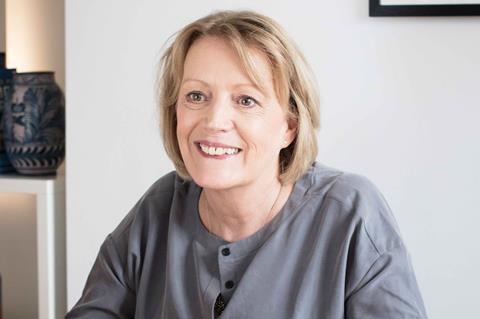Taking inspiration from the changing seasons, Louise Rodgers explores how we can find strength and draw important lessons through letting go

It’s about this time of year that I start to recommend the book Wintering by Katherine May.
It is a beautiful book; a gentle meditation on the need to welcome in nature’s fallow seasons and the simple pleasures to be gleaned from them. It can be hard to get used to, let alone enjoy, the colder and darker mornings and evenings, but May finds comfort in “cooking autumn into her house” and cold-water sea swims.
I thought of Wintering last weekend when I was walking in the woods on a carpet of acorns, conkers and chestnuts (it has been a bumper year for these) and observing how the leaves have now begun to fall in earnest.
Deciduous trees know when to let go. Nature compels them to shed the things they don’t need any more. The shedding of foliage allows sunlight to reach the forest floor and prepares the tree for the colder months by enabling its cells to harden and dehydrate, making them resistant to frost. They enter a dormant state, conserving energy until spring.
There is something to learn from this.
For most of us, entering a dormant state is neither desirable nor possible, and that’s not what I am suggesting. I do think, however, that the lesson we can take from the trees is about letting go.
Self-help gurus, therapists and sometimes, yes, coaches, talk of “letting go of what no longer serves us”, framing it as an act of self-love and personal growth. Our brains are wired for certainty, especially during times like these when everything around us seems so uncertain. We tend to favour the known over the unknown, perhaps because it feels ‘safer’. This can result in us clinging onto things, even though we know they are no longer doing us any good.
The reluctance to let go often enters the coaching space. This week, it did so twice. There was the client who had been promoted but was still hanging onto many elements of his old job. By doing so, he was not only hindering the prospects of his successor but running himself ragged, almost to the point of burnout, depriving himself of the space he needs to grow into his new responsibilities.
What if we gave as much attention to endings as we do to beginnings?
Another client was finding it hard to move on from a project now that her role on it has come to an end. She had been more or less ‘embedded’, working from a site office for a couple of years and overseeing every aspect of the construction. Now that it is time to return to the ‘mothership’, she is experiencing a huge sense of dislocation and loss, not to mention fear, as the next big project isn’t yet in sight.
Both of these examples are indicative of the relentless drive for forward motion that I think is not only endemic in modern society but also embodied by many leaders. There can be such an unwavering desire to move forward, progress and overcome obstacles, showing grit and determination, ambition and drive, that slowing down to celebrate, or even mark, endings gets completely forgotten about.
But observing and celebrating endings also offers something special. It can provide an opportunity to reflect on the journey and bring a sense of closure.
What if we gave as much attention to endings as we do to beginnings? Might it become easier to let go and reflect on what we are leaving behind?
For people who live close to the land, marking endings is an important part of the annual cycle. The celebration of the winter equinox is a perfect example of this.
So, by all means let’s embrace the idea that we should let go of what no longer serves us, but before we do so let’s take a moment to reflect on the significance they have had in our lives. If we just get rid of them or move on too quickly, we may find that we have discarded things or experiences that have, or at least once had, purpose and meaning. Even if they weren’t perfect, they changed us.
As we approach the time of year when the clocks change, or ‘fall back’, by an hour, what do you need to let go of, and how can you mark or celebrate this?
Postscript
Louise Rodgers is Building Design’s professional coach. A personal and business coach, she co-created and co-delivers Step Up, a leadership development programme for built environment consultants.
Do you have a question for Louise? If so email louise@eidyia.co.uk. She will use the most interesting in her columns but cannot enter into individual correspondence.
















No comments yet